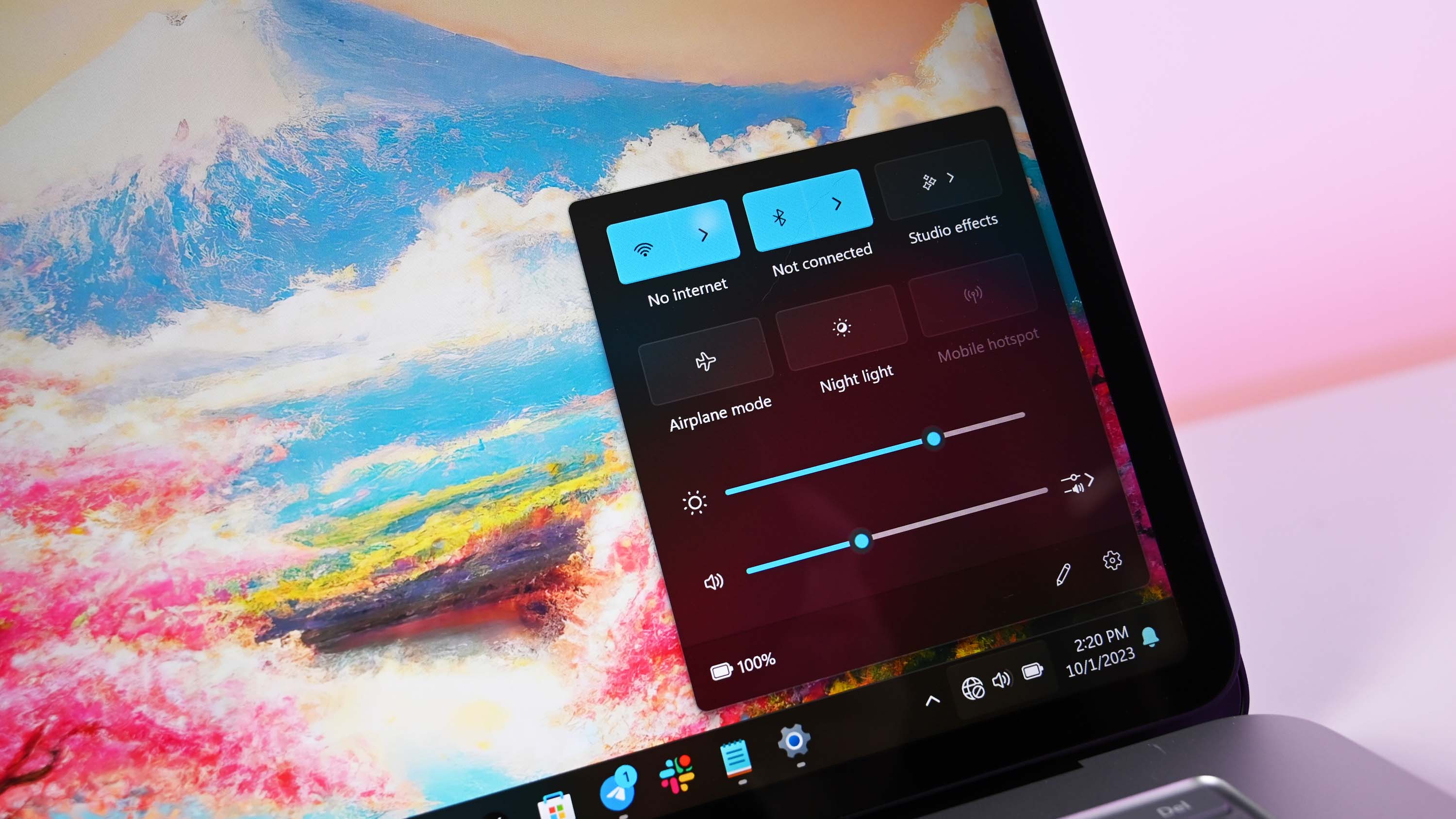A battery-free breakthrough harnesses 'ambient energy' to generate power, and perhaps it could one day end up in your Windows laptop or Xbox controller
MIT researchers recently developed a battery-free sensor that harvests energy from the environment.

All the latest news, reviews, and guides for Windows and Xbox diehards.
You are now subscribed
Your newsletter sign-up was successful
What you need to know
- MIT researchers recently revealed that we could be on the verge of battery-free technological breakthroughs.
- This could potentially present Windows, Xbox, and other tech users with a new scenario where they'll no longer need to charge their devices or use batteries.
- The technological breakthrough gets its energy from its surrounding environment.
- It relies on "ambient energy" which is sustainable, environment-friendly, and reliable.
One of the main things that perhaps hinders your productivity is the frequent need to charge your Windows laptop. This also applies when you have to hit pause on your gameplay to charge your Xbox controller's batteries when they run out of juice. It gets extremely annoying if you're on a tight deadline at work or want to wind down your day playing Helldivers 2.
According to new research, we're on the verge of a huge breakthrough that could render traditional batteries obsolete (via The Cool Down). Get this, Massachusetts Institute of Technology (MIT) researchers have developed a top-of-the-line sensor that operates itself. It doesn't need to be plugged into a power outlet or have batteries installed to function.
We have provided an example of a battery-less sensor that does something useful, and shown that it is a practically realizable solution. Now others will hopefully use our framework to get the ball rolling to design their own sensors.
MIT Researchers
Researchers have already made significant headway on this front with "holy grail" Lithium-metal anode batteries well-known for their huge potential for storing energy, affordability, and recyclability, which can charge your Windows laptop or Xbox controller in 2 minutes. Lithium-metal anode batteries were previously considered unstable rendering them unreliable compared to traditional batteries, but this issue has been fixed.
Microsoft is also actively seeking a new material that can potentially replace Lithium in batteries owing to its dangerous nature, negative impact on the climate, and susceptibility to overheating and fires.
How does this new "battery-free" technology work?

MIT researchers developed a self-reliant sensor that doesn't require batteries or special wiring since it harvests energy from its surrounding environment. The sensor could be instrumental, especially in areas considered "hard to reach" like a ship's engine. In such an instance, it can monitor the engine's temperature and power consumption while running on ambient energy from the magnetic field surrounding the wire carrying electricity.
For context, ambient energy is a form of power readily available around our surroundings created naturally or by humans. It's a great substitute for other forms of energy currently in use because of its negligible impact on the environment and climate, sustainability, and reliability. And sure, while the amount of energy generated is only enough to power sensors right now, it offers some potential for powering certain low-power aspects of laptops, or perhaps even offer some passive charging, even if it's small amounts by today's standards. But who knows where the tech could go?
According to one of the researchers:
All the latest news, reviews, and guides for Windows and Xbox diehards.
"We have provided an example of a battery-less sensor that does something useful, and shown that it is a practically realizable solution. Now others will hopefully use our framework to get the ball rolling to design their own sensors."
The researchers encountered several challenges during the sensor's development phase, including finding a way for the system to start without any voltage. The workaround for this was integrating circuits and transistors which allow the system to store energy until it can run by itself.
Next, the researchers need to find a fire-proof way of ensuring that the system can store and convert the energy harvested from the environment effectively and efficiently.
While batteries might seem like the obvious solution, the researchers opted for an internal energy storage that can include a series of capacitors. The team wanted to maintain a maintenance-free arrangement because capacitors store energy in the electrical field between conductive plates.
The breakthrough shows great potential. It'll be interesting to see the advances made to expand its capabilities.

Kevin Okemwa is a seasoned tech journalist based in Nairobi, Kenya with lots of experience covering the latest trends and developments in the industry at Windows Central. With a passion for innovation and a keen eye for detail, he has written for leading publications such as OnMSFT, MakeUseOf, and Windows Report, providing insightful analysis and breaking news on everything revolving around the Microsoft ecosystem. While AFK and not busy following the ever-emerging trends in tech, you can find him exploring the world or listening to music.
